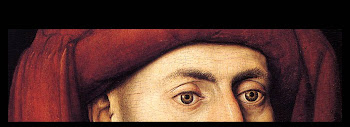
Law School was an epiphany for me. I experienced a secret, shameful joy at finally realizing what I had suspected all along in my then-young life: our language, seemingly so solid, so understandable, is built on shifting sands of fluid assumptions that no one can pin down. It was a blessed relief to finally accept that nothing I had ever known had any substance: words, after all, have etymologies (histories), but no definitions. For some, however, the tearing down of their paradigms was a crushing blow.
Blame Socrates
Don’t give me that: you and I know full well that our torts professors were hard pressed to put meat on the bones, as it were, when discussing “proximate cause,” “cause in fact,” “reasonableness” or anything else. This is why the Geneva-convention-violating mental torture that is the first-year of law school is called “the Socratic method.”
Yes, it was the sartorially-challenged, pig-faced philosopher of the preceding era that finally woke us up as an intellectual community to the fact that no one can sufficiently define a damn thing. What is “honor” anyway? What is “evil”? What is “good”? All of these words carry huge stores of collective imagination, but they are perniciously resistant to specificity. In short, our words appear to have real meaning and specific references, but in reality they are little more than shorthand for clap-trap piles of images, emotions and memories—no one can agree on what they really mean.
Ditto The Practice of Law
The same is true for our professional lives. We are paid by our clients to navigate the waters of the treacherous, labyrinthine locks of the legal system. We are charged with explaining a conceptual framework that is ever-changing, with its own vocabulary, and one that more closely reflects the paucity of meaning that our language necessarily carries with it than the layman is comfortable, or capable, of understanding. Not only this, but we must also navigate the troubled waters of building a practice.
Yes, And Our Business-Building Too
And the practice itself is fraught with difficulties. We are asked to create a synergistic vibe that will suck in business, fees and adulation, and pour out pristine written product and oral gymnastics. We must market, write, cajole, woo, manage, politic, strategize, hypothesize, inspire and command.
There is a reason why there is an entire industry of gurus whose function it is to explain again and again and always in new ways, what precisely all these tasks really are, how they are to be performed, how they are to be understood, and how they are to be communicated. In short, not only our legal vocabulary, not only our procedures, not only our practice, but our entire professional lives are themselves edifices built upon, and with, stones that in turn have no meaning, or meanings that we can barely understand, much less agree upon.
And yes, folks, that is a good thing.
The Golden Braid
Twenty-five years ago I had the pleasure and challenge of reading Douglas Hofstadter’s Gödel, Escher, Bach: An Eternal Golden Braid. Published in 1980, it was the darling of the intelligentsia for several years. It is an intriguing book alternately as clear as crystal, and murky as mud. I’m afraid it is also at times as “turgid and confused” as J.S. Bach’s music was accused of being centuries earlier. For me as a 9th-grader at the time, it was exhilarating.
The book’s title names three pre-eminent geniuses: J. S. Bach, M.C. Escher (you remember, he drew the photo at top, famous for depicting the physically impossible), and Kurt Gödel (the famous 20th-century logician). The book is worth the cover price (still in print) just for the exposition on the work of these three subtle minds.
But the point of the book is far more ambitious than a mere recitation of the virtues of three dead white guys. Rather, Hofstadter tries to communicate in fable, analogy, statistics and dense prose, that it is possible—nay, unavoidable—that our most treasured beliefs, ideas and constructs are based upon building blocks that cannot be defined, that are self-referential, in short, are “loops in logic.”
We Just Can't Help it.
By means of these three giants of thought, Hofstadter helps us to see the power, beauty and vitality of living freely and fully in the world of ideas: there we are unfettered by the need to nail down every hole in reason. The world as humans perceive it does not consist in unalterable truths, but rather in powerful ideas full of rich and ineffable meaning, built upon perhaps shameful, ugly and sweaty lapses in logic and un-pin-down-able truths.
The upshot? Life and sanity are to be based, quite probably, on constant movement. Bach’s music only makes sense when listened to as intended; upon analysis and examination, it is hopeless confused. Escher’s drawings are to be enjoyed for the mind-bending quality, not torn apart pixel by pixel. And last, the world of logic as illuminated by Gödel is a process, but based upon un-provable hypotheses.
The Moral of the Story:
The injunction: go with it. Take the meaning you have in experiencing the whole, and fret not about the messy underbelly of the details. Learn by doing.
For me as someone who has lived in and now serves the legal profession, this is a very pivotal idea. As I mentioned above, attorneys are faced with a life’s work based on explaining the unexplainable, and with creating a practice based on activities that no one can actually pin down the secret of success to. All that remains is to move forward, to run with your current opaque understanding, and find meaning and even joy in the race.
